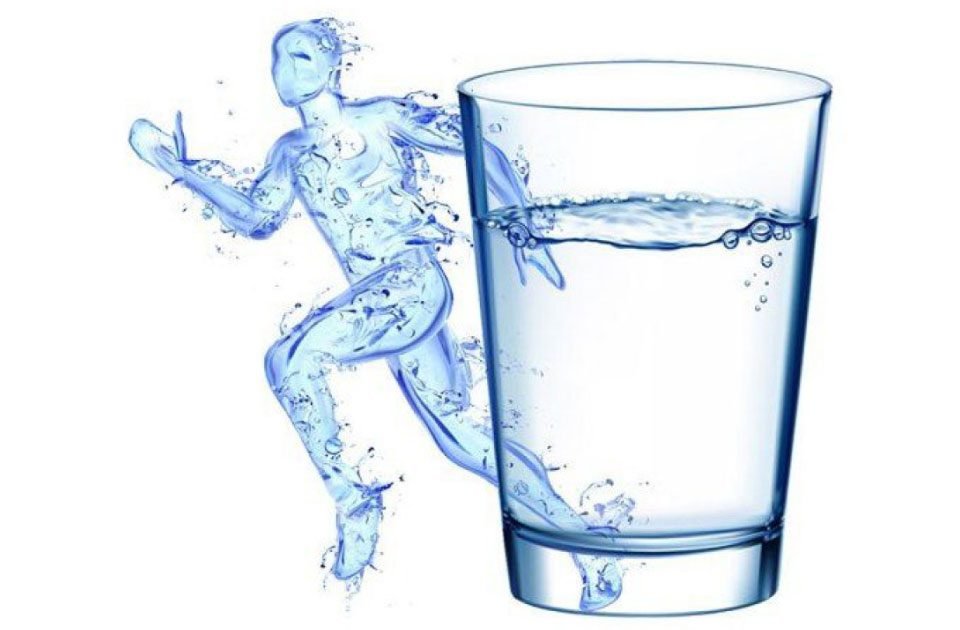
How alkaline water works and why it is good for runners
11 August, 2019
Alkaline Water & Athletes
11 August, 2019Sports acidosis
Practicing sports is not a common habit for 100% of the population. However, there is a percentage of amateurs and amateurs who, in fact, are those who suffer the most the consequences of a sporting demand going to the gym or practicing it on their own, since they have to combine it with their work, family and social responsibilities, so it could be said that this group of people is much more demanding than professional athletes who have their lives focused on sports performance.
Professional athletes who practice for marathons, triathlons, among others, are constantly subjected to stress both mentally and physically, to carry out high-intensity training, which can lead to a body condition of excess acidity, which if not properly controlled, can weaken all body systems. This problem, unfortunately, is very common among today’s athletes.
In training for highly demanding physical competitions, the body tends to lose a considerable amount of calories and nutrients, which causes the body to become very acidic.
An acidified body, favors an organic condition predisposed to disease, unlike a body with a balanced pH, which allows a normal and healthy physiological function.
In this sense, a body that is too acidic reduces the amount of oxygen that enters the cells, accelerates the damage of free radicals, the speed of accumulation of lactic acid, pain in joints and muscles, not favorable aspects for an athlete or for people who try to lead a healthier life doing some exercise routine, since in a condition of acidosis, the body is forced to extract minerals such as calcium and magnesium from the bones, in an action known as buffer, a natural mechanism of the body to try to balance the pH. However, if our body does not have sufficient capacity to eliminate all the acid waste it generates through the lungs, skin and kidneys, it gradually increases the concentration of toxins, affecting various body functions that are vital for an athlete, such as energy, endurance and recovery.
Food
One of the ways to combat the acidosis generated by the regular and intense practice of various sports disciplines is by consuming alkaline foods, since these are characterized by being a high source of minerals such as calcium, potassium, magnesium, sodium and zinc mainly. On the contrary, phosphorus, sulfur, iron, iodine and chlorine, supplied by animal and vegetable proteins, are acidifying.
Although it is true that both types of food, alkaline and acid, are necessary for our organism, it is also true that we need to know how to manage their intake well, since we require 80% of the alkaline range and only 20% of the acid range, in order to achieve a healthy and correct diet.
Physical activity increases energy needs and some nutrients, so it is important to consume a balanced diet based on a wide variety of foods, with the correct selection criteria. In addition, to consider other factors such as:
- Intensity and type of activity practiced
- Duration of exercise.
- Age, sex and body composition of the individual.
- Temperature of the environment.
- Degree of training click.
In this sense, although our diet should be based on a solid intake of alkaline foods we cannot forget the consumption of liquids with alkaline properties, because the absorption capacity of these, can influence much faster on the level of alkalinity of our body helping us to neutralize the acidity and achieve pH balance in the body, just by drinking alkaline water.
With these simple tips, we will be able to keep tiredness, fatigue and oxidation away from our body.
Micronutrients
These are the vitamins and minerals that are essential for human beings as they cannot be produced by the body itself but are received from the outside through food intake. They are important to maintain a good state of health, especially when practicing sports, since they intervene in the adaptation processes that take place in the body during training and the recovery period.
To maintain adequate levels of micronutrients, it is advisable to eat a varied and balanced diet. A deficiency in micronutrients not only diminishes athletic performance, but can also be detrimental to health.
Minerals are essential elements, so, like vitamins, they must form part of the daily diet of the athlete in adequate quantity, since they participate in a wide variety of processes, both in general metabolism (mechanism for obtaining energy, synthesis of a multitude of vital substances and structures, etc.) and fulfilling more specific functions (forming part of the bone, oxygen transport, muscle contraction, among others).
Minerals can be classified into: macrominerals (calcium, phosphorus and magnesium), microminerals or trace elements (iron, iodine, fluorine, chromium, copper, selenium, zinc, cobalt, manganese and molybdenum), and electrolytes (sodium, potassium and chlorine).

Antioxidants and athletes
High performance sports are very demanding and sometimes very intense and exhausting training periods are endured. Overtraining can lead to a state of sustained stress, which results in a situation of continuous oxidation. This generates an excessive amount of free radicals that can lead to chronic fatigue. In the presence of high concentrations of these substances (free radicals), the body must defend itself with antioxidants that act by delaying the oxidation of other molecules, neutralizing free radicals and preventing tissue damage.
Hydration
Water is the most abundant component of the human body, essential for life: you can go several weeks without eating, but only a few days without drinking. The loss of as little as 10% of body water poses a serious health risk. Water is directly involved in a number of functions:
- Cooling
- Supplying nutrients to the muscle cells
- Elimination of waste substances
- Lubrication of joints and
- Regulation of electrolytes in the blood.
The sources of water are beverages, food and water produced by the body’s general metabolism. All this amount of water must cover the daily losses of water through urine and feces, sweat and water vapor eliminated through the lungs. The greatest amount of water is stored in muscle (72% of its weight is water), while fatty tissue contains a much smaller proportion.
Approximately 80% of the energy produced for muscle contraction is released in the form of heat.
Our organism must eliminate this large amount of heat to avoid an increase in body temperature, which would have very negative consequences for health, so it must resort to the mechanism of sweating, which at the same time as it cools the body, causes a significant loss of liquids. Thermoregulation and fluid balance are fundamental factors in sports performance.
Generally speaking, humans lose about 2 liters of water per day through urine, sweat, breathing and defecation. And when doing sports, this loss increases significantly. Hydrating well allows the athlete not only to recover the water lost but also to eliminate the acid metabolites (lactic acid) produced during training.
Drink for athletes
These drinks have a specific composition to achieve rapid absorption of water and electrolytes, and prevent fatigue, with three main objectives:
- To provide carbohydrates that maintain an adequate concentration of glucose in the blood and delay the depletion of glycogen deposits,
- Replenish electrolytes, especially sodium.
- Hydrate.
The beneficial effects are not limited only to athletes who perform regular and intense muscular exercise, but also to those people whose jobs require them to make important efforts or in adverse conditions, and to those people who during their leisure time do physical exercise and train.
Benefits of Alkaline Water for athletes
Alkaline and ionized water acts as if it were soap, helping to eliminate toxins generated as a result of training. Another relevant aspect of alkaline water is that it will prevent overloading the kidneys during and after exercise.
In addition, it will keep the tissues more oxygenated and hydrated, helping to increase sports performance and facilitating recovery after sports practice.
The recommendation for athletes is to drink approximately 1 liter of alkaline and ionized water per day, for every 18 kg of weight. Studies also suggest drinking 1 liter of alkaline water half an hour before training, hydrate during and at the end of the sport, at least another liter.



